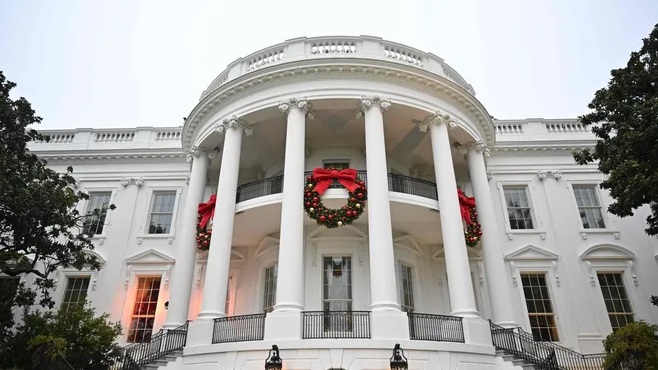Will this be the COP that loses the 1.5 C target?
COP27
“The pace of things has been incredibly slow.” Rod Oram at the global climate summit finds a vibe of inaction that’s worrying some attendees
Egypt, President and host of the COP27 climate negotiations, has produced an informal sketch of the themes that might make it into the final agreement due in three days’ time.
In typical COP fashion, though, negotiations are likely to continue into the weekend before the final document is agreed and COP27 declared closed.
The two-page document touches on all the big issues of climate mitigation and adaptation, and the finance needed to fast-forward them in developed and developing countries. But most of the themes, even with many falling by the wayside, will require fierce negotiations between countries, particularly developed and developing ones, to reach common ground.
Crucially, there is no explicit mention in the document of 1.5C, the critical threshold beyond which the climate crisis will escalate rapidly. The closest it gets is a reference that the final document will “broadly reflect” decisions taken at COP26 last year in Glasgow. Those were hailed at the time as “keeping 1.5 alive.”
But those have since been dashed by deeply adverse geopolitical, climate, political and economic conditions in many countries.
“We’ll either leave Egypt having kept 1.5C alive or this will be the COP where we lose 1.5C,” Alok Sharma, the British politician who was president of COP26, told a meeting of politicians and officials here at COP27 in Sharm el-Sheikh.
“You need to work out how you want future generations to look upon this COP and each of us individually as countries. It is really up to us to decide.” He told them that “every fraction of a degree matters.”
The other dominant issue at this COP is how to channel billions, if not trillions, of dollars of finance in coming years from rich countries to poor ones to help them recover from the loss and damage they’re suffering from climate catastrophes.
Just establishing a fast-track process for creating such mechanisms by 2024 is the best outcome that can be hoped for. And the current odds on just that goal are long.
Meanwhile, Germany is spearheading Global Shield, a separate initiative that looks like an insurance scheme with premiums from developing countries subsidised by voluntary contributions from richer ones. It would sit alongside any broader finance mechanism. Germany launched the plan at COP27 in partnership with the V20 group of climate vulnerable countries.
Germany has committed €172 million, France will kick in €20m next year, Ireland has promised US$10m and Canada US$7m. The total promised so far is about US$210m. By comparison, Pakistan faces some US$30 billion of costs from its extensive flood earlier this year.
While some developing countries have expressed support for such an insurance-based approach, they stress it can only be a supplement to, and in no way a substitute for, far bigger mechanisms for channeling affordable climate finance to them.
Such initiatives and negotiations are common to all COPs. Yet each COP has its own character, reflecting in part the state of the world at the time and the style of presidency and hospitality offered by the host country.
A definitive verdict on this COP will have to await the final agreement and reflections by many people on their whole-of-COP experience. But there is already much discussion among delegates of their experiences to date.
For example, Kaeden Watts, a rangatahi Māori NGO delegate working with The International Indigenous Peoples Forum on Climate Change, the representative body recognised by the UN climate framework, offered Newsroom his perspective on this COP compared with two previous ones he’s attended:
“It’s been a really different energy. The pace of things has been incredibly slow compared to previous years. There’s been less action, fewer announcements from states, from other organisations and from NGOS. It’s rather tense, I would say. Negotiations are slower and there are fewer decisions coming out.”
Meanwhile in COP27’s themes of the day, yesterday [Tuesday] was Energy Day. Highlights included:
– Urgent calls from negotiators for the EU and a number of other countries to phase out fossil fuels
– The World Health Organisation highlighted the extensive damage to people’s health caused by fossil fuels and called for treaty action on the issue
– The Africa Just and Equitable Energy Transition Initiative was launched by Egypt, as COP27’s President. It’s aimed particularly at supplying renewable electricity to some 600 million sub-Saharan Africans who lack access to electricity.
Today’s official themes are Oceans and Transport. But a collective of international NGOs has usurped the official programme and renamed it Phasing Out Fossil Fuels Day.
My COP report tomorrow will cover some of the highlights of that, with some reporting on sustainable aviation fuels, which will feature under the official Transport theme.
Lastly, a follow up on my comment in my report on Monday that New Zealand was “conspicuous absent from COP27’s Agriculture and Adaptation Day on Saturday.”
In reply, our Government sent me list of the negotiations and events that Kay Harrison, our Climate Ambassador, and her Mfat colleagues participated in on Agriculture Day.
They worked the COP day hard. But as useful as those government efforts were on Agriculture Day, they were invisible and irrelevant to our food customers around the world.
What really matters to our customers is what farmers are doing on climate.
But no farmers or their representatives were here on Sunday to tell the world their story.




